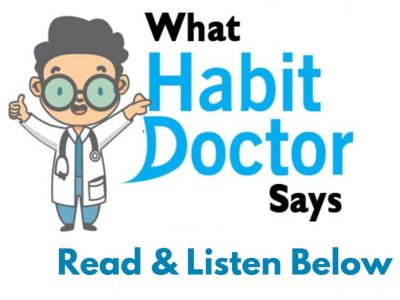Human psychology appears to be divided into two distinct aspects: learning and habits. Learning encompasses knowledge, information, and talents. A habit consists of routines, behaviours, and activities.
However, the two operate on essentially the same brain principles and recognising this relationship may assist you in learning and developing stronger habits.
- Let’s define a habit to see how the two are related. A habit is a semi-automatic behavioural response to a certain set of environmental cues. To put it another way, when you say you have a habit, you are referring to something similar. A regular exercise “habit” could, for example, be a series of such connections of varying complexity.
- Although some habits are as simple as a cue and reaction, the majority are more complex, dealing with specific sub-cases and having rules for certain situations that become embedded and work the majority of the time. It is also not necessary for a habit to be completely paired in order for it to count. A voracious reader may not “read whenever something happens to him,” but rather has a proclivity to read more when something fascinating happens.
- It turns out that learning is very similar to this. To learn something, you must respond in some way intellectually or physically when provided with a succession of signs. However, as previously said, habits are frequently complex, with various responses for different situations and sometimes just on a probabilistic basis, rather than a fully automated response to a scenario.
- One obvious distinction between learning and habits is that putting what you’ve learned into practice is a more deliberate action, whereas creating a habit is thought to be mostly automatic.
- Of course, a habitual behaviour has a strong default; otherwise, it would not be a habit, but this is also tied to learning. When you come across a circumstance that you’ve encountered before, your first reaction is to employ the tactics you’ve already learned. It takes effort to solve a problem in a novel way, just as it takes effort to get out of a rut.
- We still don’t understand how the brain learns and creates habits. However, a fundamental principle shared by both appears to be selectively enhancing neural circuit connections that lead to the desired output while decreasing incorrect or spurious connections. When a string of neurons activates, they form a strong connection with downstream synapses, ensuring that when the earlier one’s fires, the later ones will almost certainly fire as well. Consider a river carving a valley into the ground; the water flowing downwards will almost surely take a predictable path.
- Learning occurs when the links of one long-term memory become closely linked. This can be as simple as a cue-response or as sophisticated as solving a differential equation by allowing the differential equations forms to flow into the mental movements that begin to solve it. Some habits are remembered as links between higher-level abstractions, such as remembering to write down to-do items at an office meeting while activities are discussed.
- When you compare learning to habit building, you might start to think of learning as a process of planning behaviours in specific situations rather than accumulating information. As a result, learning a language includes more than just memorising vocabulary phrases; it also entails knowing how to apply specific knowledge in response to specific situations.
- If you think about learning as cue-driven and context-based, as well as something that can be trained like a habit through repetition of the cue-response pattern, you’ll be far more likely to practise in a way that will eventually be effective. When you recognise that the habit you’re forming isn’t the habit you genuinely require, you’ll be able to identify unsuccessful learning strategies.
- Similarly, viewing habit formation as a learning process can assist you in improving it. Instead of viewing your habits as basic units, you can recognise that you’re seeking to generate adaptable responses to a range of situations, each of which must be conditioned separately.
Above all, by examining the relationship between learning and habits, you can understand how much of your life is made up of similar patterns. Cue and response loops that you’ve perfected over time influence your ideas, emotions, relationships, and identity. After you’ve found the patterns, you may start changing them.



Daily inspiration for positive change. These articles have made me more mindful of my choices.